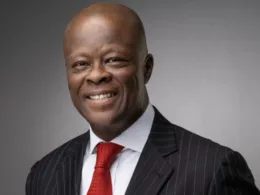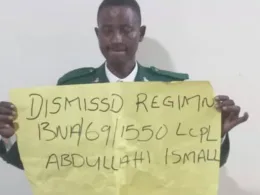The Economic and Financial Crimes Commission (EFCC) has intensified its fight against internet fraud, arresting four Chinese nationals and 101 Nigerians in Abuja on January 9, 2025.
The operation was conducted at a business apartment in the Gudu area of the city, targeting a syndicate allegedly involved in sophisticated international scams.
The EFCC disclosed that the suspects, consisting of 67 males (including the four Chinese nationals) and 38 females, were implicated in fraudulent schemes aimed at victims and hotels across Europe and other regions. These scams involved fake job offers for hotel reviews, enticing unsuspecting individuals to part with money under false pretenses.
An EFCC spokesperson confirmed:
“The suspects will be charged to court upon the conclusion of investigations.”
The operation, which stemmed from actionable intelligence, highlights the growing sophistication of internet fraudsters who often collaborate with foreign nationals to execute elaborate schemes.
The presence of foreign nationals in Nigerian internet fraud syndicates has raised significant concerns. According to EFCC reports, similar operations in recent months revealed a disturbing trend of foreigners training and working alongside Nigerians in executing scams.
In December 2024, the EFCC arrested 792 suspects across various locations for their involvement in cryptocurrency scams and romance fraud. That operation unearthed a network of 148 Chinese nationals, alongside others from the Philippines, Pakistan, Indonesia, and Kazakhstan.
These individuals often operated from corporate-style buildings, presenting themselves as legitimate financial establishments. Investigators seized high-end computing equipment, large volumes of SIM cards, and fake identification documents used to facilitate their operations.
The EFCC has made significant strides in tackling cybercrime, corruption, and internal misconduct. In 2024, the commission dismissed 27 officers for engaging in unethical practices, a step described as crucial for maintaining the agency’s integrity.
Dele Oyewale, the EFCC’s Head of Media and Publicity, emphasized the agency’s zero-tolerance policy:
“The EFCC is determined to enforce integrity within its ranks while intensifying efforts to rid Nigeria of internet fraud and corruption.”
The EFCC has also been battling impersonators who exploit its name to extort money from individuals under investigation. Recently, two members of a syndicate were charged before the FCT High Court for defrauding prominent figures by claiming they could influence ongoing investigations.
Tools and Strategies
The EFCC has adopted a multi-faceted approach to combat cybercrime, including:
- Enhanced Intelligence Gathering: Collaborating with local and international agencies to identify and dismantle fraud networks.
- Public Awareness Campaigns: Educating Nigerians on common scam tactics to reduce victimization.
- Technological Advancements: Utilizing sophisticated tools to track digital footprints and gather evidence.
These measures aim to protect Nigeria’s digital landscape and improve its global image, which has been tarnished by the prevalence of online fraud.
The EFCC has assured the public that all suspects will face trial once investigations are completed. The agency also promised to disclose further details about the operation, including the financial impact of the fraudulent schemes uncovered.










Join our Channel...